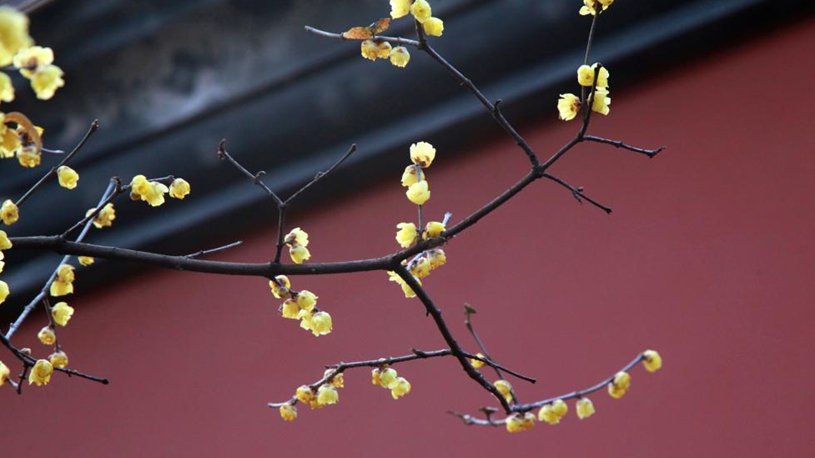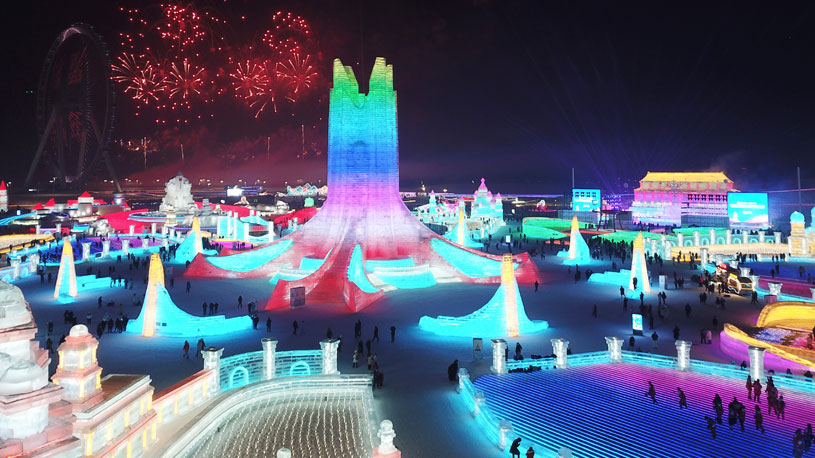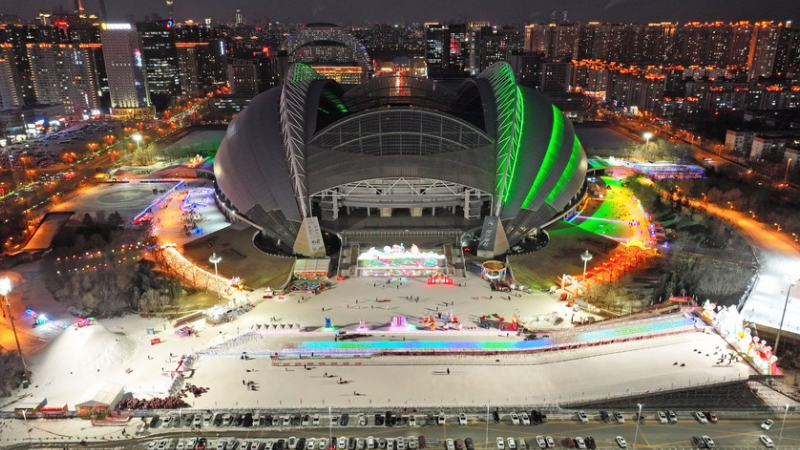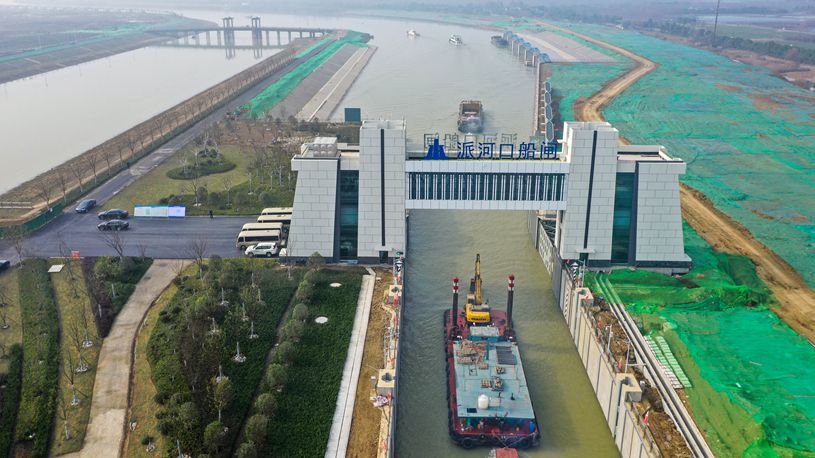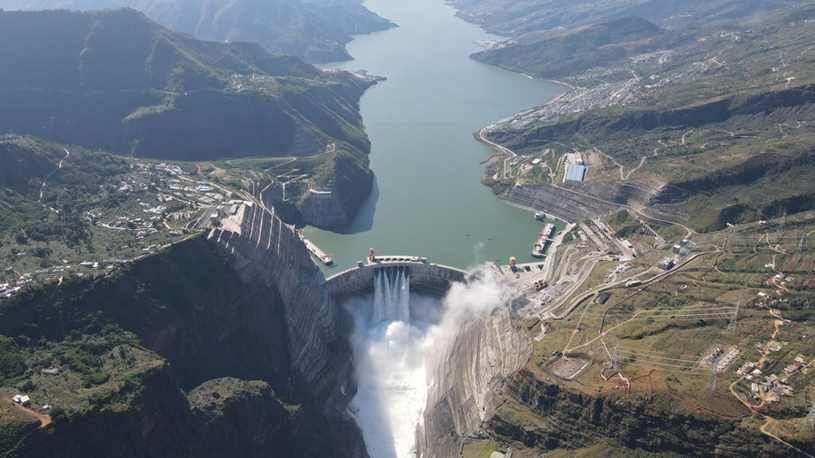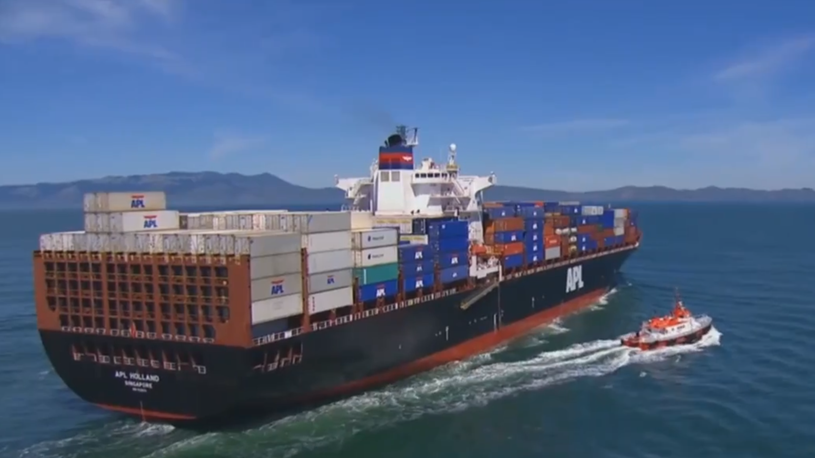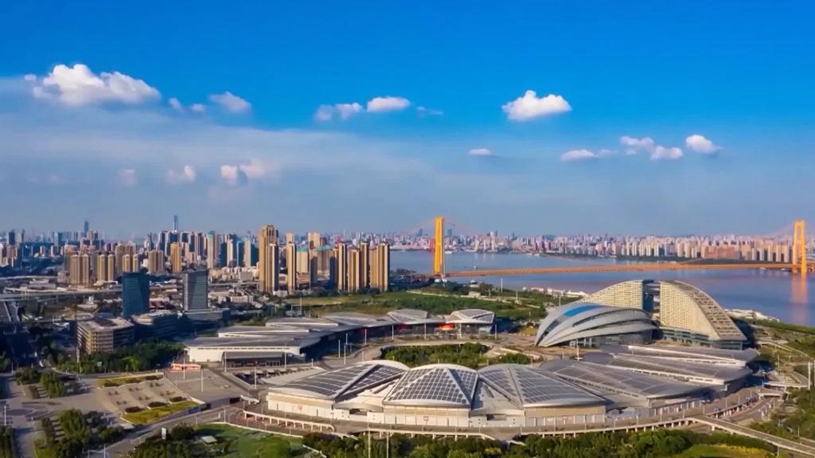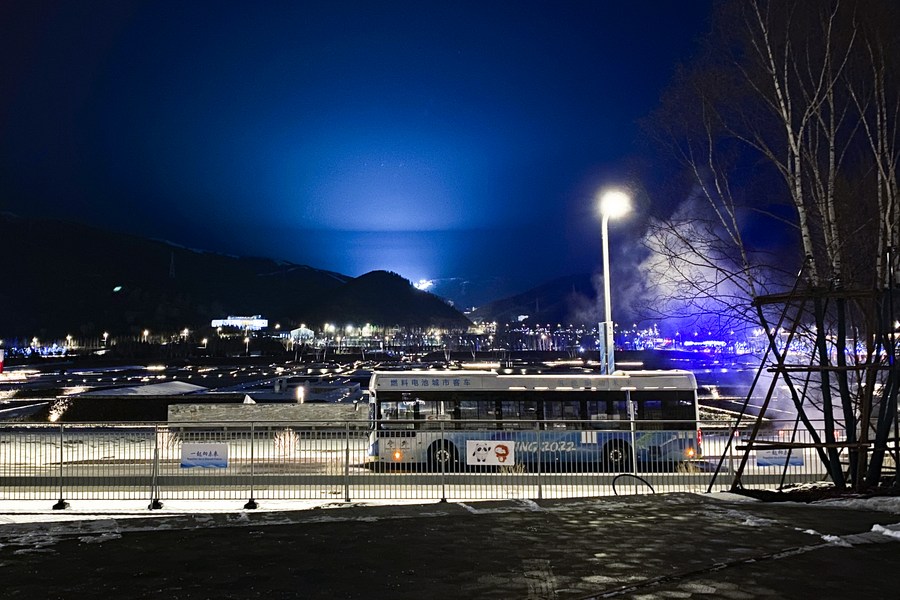
A fuel cell ferry bus runs during the Beijing 2022 Winter Olympics in Zhangjiakou, north China's Hebei Province, Feb. 12, 2022. (Xinhua/Xu Chang)
SHIJIAZHUANG, Jan. 9 (Xinhua) -- Nearly a year after the city of Zhangjiakou in north China's Hebei Province co-hosted the Beijing 2022 Winter Olympic Games, 444 hydrogen-powered buses have become the preferred mode of public transport for locals. These buses were first used for the Olympics.
The hydrogen-fueled vehicles can start quickly in the low winter temperatures of minus-30-degrees Celsius in the high-latitude city, some 160 km to the north of Beijing.
After the global sports showpiece last year, Zhangjiakou has continued to actively explore the practical application of hydrogen vehicles, taking advantage of its rich wind and solar energy resources, according to Wang Hewu, executive director of the Zhangjiakou Hydrogen Energy and Renewable Energy Research Institute.
Hydrogen can be produced from various sources of primary energy, including coal, natural gas and renewable energy, through power generation. The hydrogen produced from renewable energy such as wind and photovoltaic power is called green hydrogen -- making it one of the most eco-friendly technologies.
Wang said that a key challenge of using hydrogen-fueled vehicles is solving the question of water as byproduct. Water freezes due to low temperatures, and this causes the performance of the battery system to decline.
The institute has taken the lead in developing a whole chain information monitoring system, in order to track the process from hydrogen production, storage and transport, to application in the city.
SinoHytec Power Technology Co., Ltd., a leading Hebei-based enterprise in the field of hydrogen energy, undertook research and development to solve problems such as securing the quick start of fuel cells at low temperatures.
"After multiple rounds of technical iteration, the product performance of the fuel cell system has been greatly improved," said Song Haiying, general manager of the company.
During the 2022 Beijing Winter Olympics, a total of 710 hydrogen-powered vehicles were put into operation in Zhangjiakou, realizing the largest demonstration application of hydrogen fuel cell vehicles in Olympic Games history.
Up to now, hydrogen-powered vehicles have carried over 80.7 million passengers and covered over 27 million kilometers in Zhangjiakou. In addition to public transport, they have been used in urban cleaning, logistics and for the transport of heavy-load cargo in the city.
Following the release of a national plan in March 2022 aimed at promoting the development of the hydrogen energy industry, local authorities in China are putting together detailed policies to seize emerging opportunities.
By 2025, the country will have about 50,000 hydrogen fuel-cell vehicles and its annual hydrogen production from renewable energy will reach 100,000 to 200,000 tonnes, according to the plan jointly released by the National Development and Reform Commission, and the National Energy Administration. ■

